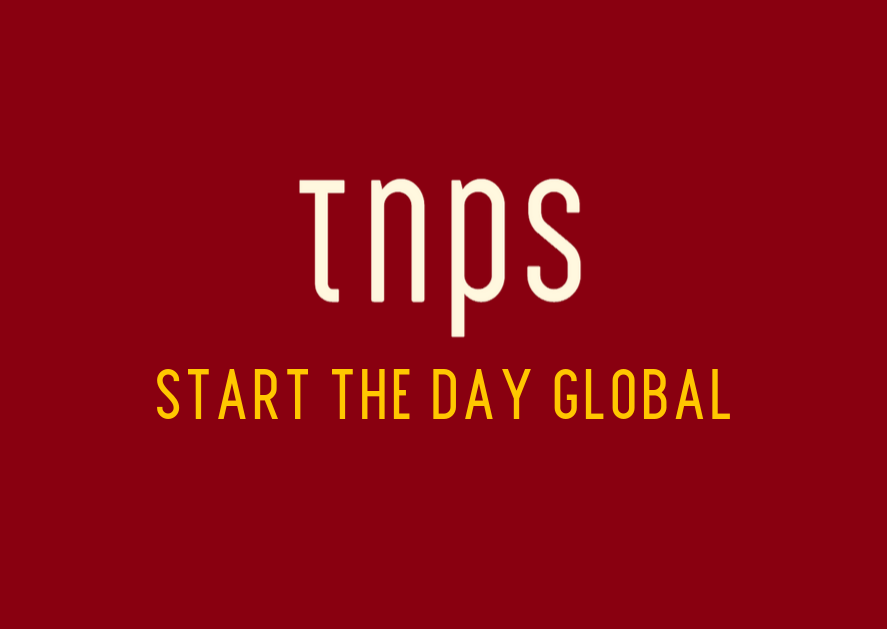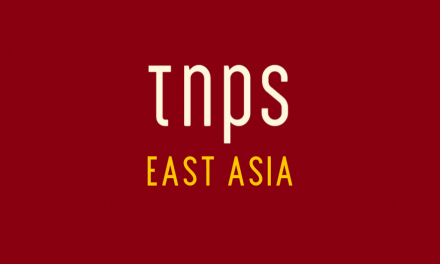Imagine if an old School publishing CEO had been in charge of Apple. The iPod, iPhone and iPad would never have been made. Nobody has ever bought an iPhone so why bother inventing one? What’s up with the phone on the wall in the lobby?
Will western publishers finally wake up to online reading now Amazon and Apple are in the webtoon game? Probably not, is the answer to the headline question.
Their loss, as we will see at Frankfurt on October 18 when Hou Xiaonan joins Rüdiger Wischenbart for the Global 50 CEO Talk, to discuss Tencent’s ownership of one section of the online reading market. TNPS regulars will be familiar with China Literature, formerly Qidian, from when it briefly made waves in the western trade press in 2017 with its then eye-popping $1.1 billion IPO.

The Frankfurt Global 50 CEO Talk will bring us up to date on Qidian / China Literature / Yuewen’s current status, but the event promo offers us some advance nuggets to get us salivating.
10 million writers, 2000 million MAUs, 10 million literary works, annual revenues of $1.05 billion.
“Founded two decades ago (as Qidian), it preceded platforms such as Wattpad or Kindle Direct Publishing, pioneering a digital universe for storytelling in all its facets.”
At which point enter, stage right, Joe Wikert, who coincidentally has a post on LinkedIn this week saying he misjudged a digital opportunity back in the 2010s. I plan to come back on Wikert’s post for its confidence in AI, but here to briefly question just how wrong Joe was, and to suggest that actually he got it right in many ways.
Joe Wikert: “I thought rich ebooks were the future. Smart ebooks, with dynamic, interactive content would replace the first generation of static ebooks. No longer would we be living in a world of “dumb content on smart devices” or “print under glass.” Boy, was I wrong. Besides the fact that the majority of readers just want the simple, static experience, the economics for rich ebooks simply didn’t work.”
Economics was of course the prime mover in undermining that forecast – we’ve seen developments as exciting as augmented reality ebooks fail to capture the publishing mainstream, and all variations of “enhanced” or “rich” ebooks faced the battle of not being functional on standard e-reader devices, which most who choose to read digital opt for.
That and the simple reality that an immersive fiction text, like a novel, is written to be read. On paper or screen, it matters not, but it’s written to be read. No enhancement or enrichment needed. Enhanced ebooks might have done well for non-fiction, graphic novels and children’s books, but the industry will was not there, and that in turn dictated the lack of consumer interest. Consumers cannot rally around products that don’t exist, don’t offer much variety, or are prohibitively expensive.
It didn’t have to be that way. But publishing, among the most conservative and snail-like of industries ever, has for most of its existence focussed obsessively on giving the consumer what it thinks they should have. The idea that consumers might have minds of their own is something many Old School publishing CEOs seem to struggle with.
Back in 2014, as subscription ebooks began to threaten the status quo, PRH UK CEO Tom Weldon, was busy explaining PRH policy on giving consumers choice:
“We have two problems with subscription. We are not convinced it is what readers want. ‘Eat everything you can’ isn’t a reader’s mindset. In music or film you might want 10,000 songs or films, but I don’t think you want 10,000 books.”

It’s a mindset that pervades western publishing still today, as then, and long before. Resist all change until we see someone else has gone ahead and done it anyway, against our wisest advice, and is making a mint, then jump on the bandwagon.
Manga, anyone? Paperback books? Self-publishing?
So when Jo Wikert suggests consumers did not want “rich” ebooks, I’d argue they were never given the option by the big mainstream publishers that were in a position to make the option possible.
When it comes to publishing, the bigger the company, the less likely it is to try anything new. The less likely it is to think that maybe the consumer is capable of making up his or her own mind.
As former PRH CEO Markus Dohle explained, “Readers need guidance and orientation provided by publishers and retailers who help them to find their next best read.”
So Joe Wikert hit the nail on the head with his “‘dumb content on smart devices’ or ‘print under glass'” analogy, because that has always been the default mode of western publishers tentatively dipping toes into digital waters. A digital book is a print book that can also be read on a screen. A second-rate reading experience. A “Japanese fad”. Not something the readers actually want. And definitely not something to allow to develop organically when the CEO of the largest trade publisher had already “made a bet on print.”
Wikert’s too-narrow vision of the possible with digital – the focus on “rich” ebooks – meant the wider digital/online reading picture was rather lost, and that suited western publishing just fine. Regular ebooks were a necessary evil, online reading an evil too far, and digital audio was only reluctantly embraced, at least until the profits began to roll in.
At that point mainstream publishing slowly woke up to the reality that digital audio could be much more than just the printed page read out loud, the audio equivalent of “dumb content on a smart screen.”
But if a few publishing pioneers had not seized the opportunity tech companies provided with their new-fangled smart devices, mainstream publishers would still be dictating printed books onto magnetic tape spooled in a plastic cassette. We know best. Readers need our guidance and orientation provided by publishers and retailers who help them to find their next best read, remember?
And just imagine if an old School publishing CEO had been in charge of Apple. The iPod, iPhone and iPad would never have been made, because there was no consumer history for such a product, therefore no demand. Nobody has ever bought an iPhone so why bother inventing one? What’s up with the phone on the wall in the lobby?
The idea that the product creates its own demand (the Kindle, anyone?) is something many Old School publishers still don’t get. Dinosaurs like Markus Dohle are still insisting consumers do not really want to buy online, and can only be satisfied by a printed book sold in a bricks & mortar bookstore.
It’s that same we-know-best mindset that has left western publishing at the port, watching the online reading boat sail over the horizon.
Recently Amazon (and Apple) finally got some skin in the webtoon game. In Japan. Twenty years after webtoon first became a thing.
Amazon of course is limited by its historic territorial decisions. While many think of Amazon has a global behemoth, it in fact is operational in only a handful of countries, and even fewer when it comes to publishing. Many Amazon sites do not have Kindle stores and do not sell books except through third-party sellers.
But Japan was an early-scoring goal for Amazon, and it will have been looking on enviously as manga and webtoon online reading went from oriental fads to fully-fledged global phenomena.
With Fliptoon, Amazon has made its first attempt at entering the webtoon market. Apple is also getting in on the act.
Naver WEBTOON, which for all practical purposes invented and owns the market, was sniping at Amazon a month ago.
Kim Junkoo, CEO and founder of Naver’s Webtoon Entertainment which created the format in 2004, brushed off Apple and Amazon’s ambitions:
“To build a (webtoon) store, you need knowledge about serial services, user targeting, a fitting business model, educating users. This takes time. But even if you put in time, you can’t recreate the creator economy we’ve built.”
Because, yes, webtoon is another example of online self-publishing that doesn’t follow the western ebook model and is therefore casually dismissed by western publishers, but which has proven very lucrative for those who chose to engage.
Per Reuters, Webtoon Entertainment alone has generated 1.6 million titles from 900,000 self-publishers as of January, with weekly-episode publishers pocketing an average $90,000 for their efforts. That’s direct from the platform. With external revenue from the IPs that figure rises to an average $346,000.
Webtoon Entertainment, says Reuters, “has global monthly active users of 85.6 million as of Q2 2022 in more than 100 countries – including 12.5 million in the United states – up from 40 million in 2017. About 80% of them are younger than 30.”
Along with the many activities outlined in the Yuewen summary above, webtoon – and remember the above figures are just for one player, Naver WEBTOON – online reading and online publishing is huge in a way many western publishers do not begin to realise.
The global webtoon segment alone was worth $4.7 billion in 2021 and is projected, says Reuters, “to make $60.1 billion by 2030, according to Spherical Insights & Consulting.”
I have to say I find that projection overly ambitious, but seven years is a long time in digital publishing, and a value half that – say $30 billion – certainly would not stretch plausibility.
No wonder Amazon and Apple are belatedly making efforts to get a piece of the action.
The vast scale, and the inexorable rise and rise, of online reading, is something TNPS has long been reporting on. Let me round off this essay with some examples from the archives:

From that post:
There are certain aspects of the publishing industry western publishers struggle with. Online reading and digital streaming among them.
With many publishers still tentatively juggling the often conflicting demands of print vs digital books, of bricks & mortar vs online retail, of streaming, and even audio (just look at the ridiculously tiny fraction of books that are available in audio format) it’s been a relief that that other menace to civilised publishing, online reading, has been kept firmly at bay in the Far East.
One less thing to worry about. Until now.
Ouch! Here is western publishing, defiantly looking the other way from online reading and defiantly looking the other way from streaming, and one of America’s biggest studios is planning to milk content from Wattpad Webtoon authors – many of whom have never published a regular print book or even a regular ebook – and the stories will be streamed on Paramount+.
Also from the archives:

From that post:
India’s Pratilipi boasts 370,000 authors pumping content that reaches an audience of 70 million – more than the entire population of the UK.
Add the 70 million readers on Pratilip , the 49 million for China Literature outside China and the 166 million for Wattpad-Webtoon and – before we even begin to tot up the actual Chinese readers (over 500 million), other Korean platform readers (Kakao, Munpia, Joara) and those on other global online reading platforms (too many to count) – the audience reach that mainstream western publishers is seemingly oblivious to gets very, very serious. And for those that are in the running, very, very lucrative.
Welcome to the invisible parallel world of publishing and its verticals, brought to you by digital.





